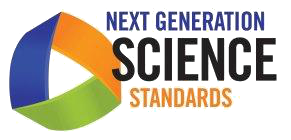Join us this fall as we study plant biology, animal science and agricultural engineering!
After studying plant parts, functions and byproducts, we'll learn about domesticated animals and livestock.
We'll travel back in time to Mesopotamia, home to one of the world's earliest and most vibrant ancient civilizations.
Then, we'll explore the Tigris and Euphrates as we learn about the importance of rivers and water systems in developing agricultural economies.
Finally, we'll use the engineering design process to solve food production problems surrounding population growth.
In this 100% online, self-paced class, there are no scheduled live meetings. You enjoy the course at your own pace.
This format is great for students who prefer to learn independently, have busy schedules or are uncomfortable with live meetings.

LS1.A, LS1.B, LS1.C, LS2.A, LS2.B,
LS2.C, LS2.D, ESS2.C, ESS3.A, ESS3.C, PS1.B









